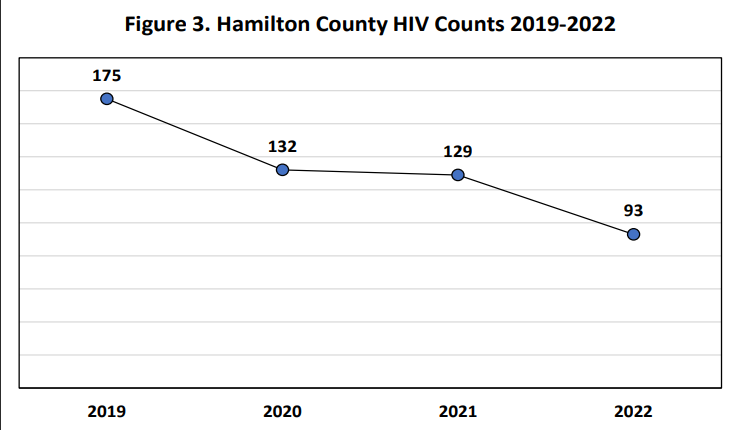Infection
‘Our work is far from done’: New HIV cases in Hamilton County are down 50% since 2018
HAMILTON COUNTY, Ohio — New HIV (human immunodeficiency virus) cases in Hamilton County are down more than 50% since 2018, according to Hamilton County Public Health.
The county credits a portion of its success to a comprehensive federally-funded program called “Ending the HIV Epidemic.” Hamilton County was one of only 48 counties selected across the country to participate in the program.
The program is designed to not only prevent new infections, but to also ensure that those living with HIV have access to treatment.
There are four main components to the program:
- Diagnose cases by expanding testing opportunities and access.
- This includes expanding testing in health care and emergency department settings to identify cases quickly.
- Treatment by getting people with HIV on viral suppression medications.
- Prevention by creating community engagement to expand education on proven interventions.
- This includes education on access to treatment and medications, safe sex practices and reducing the stigma surrounding a diagnosis.
- This also includes implementation of county’s “Safe Services” program. The goal is to provide information and sterile equipment for those with substance use disorders, because people who inject drugs are at a greater risk for HIV.
- Quickly identify outbreaks and clusters.
“While we are certainly pleased with these results, our work is far from done,” said Hamilton County Health Commissioner Greg Kesterman.
The county’s goal is to reduce new HIV infections in the county 75% by 2025 and 90% by 2030.
Data from the county’s latest HIV quarterly report, shows that while cases are trending down overall, there is a 14% increase in new HIV infections when comparing data from the first and second quarters of 2022 and 2023.
The report also shows that new infections in March and June of 2023 were above the 3-year average. All other months in 2023 were below the average.
Public Information Officer for Hamilton County Mike Samet said the slight increase is nothing to be worried about.
“These numbers tend to fluctuate,” he said. “No concern here with not being able to get to (the) 2030 goal.”
For more information on HIV testing, care and prevention in Hamilton County, click here.
Watch Live:

